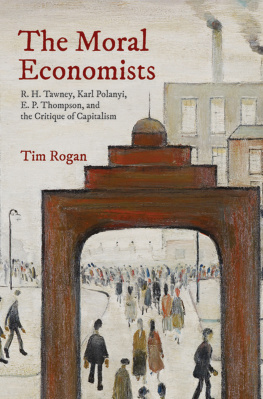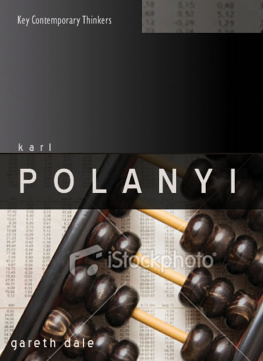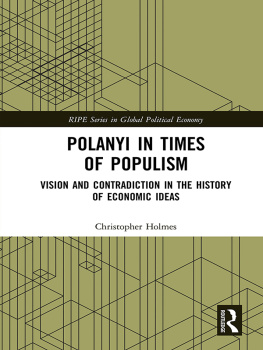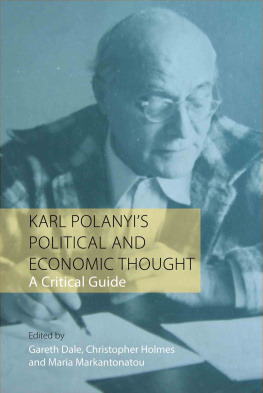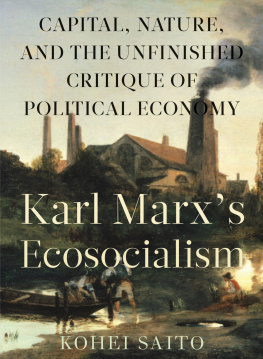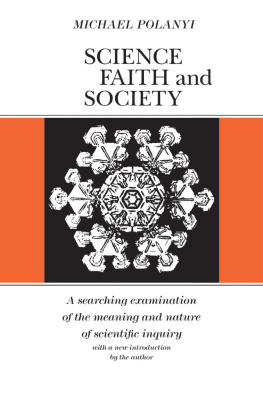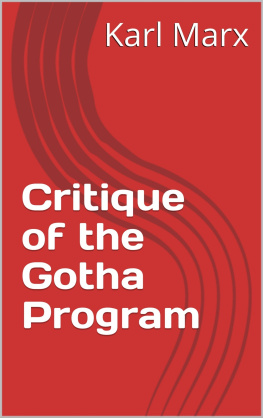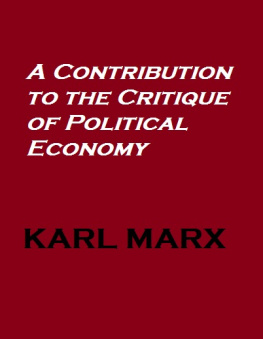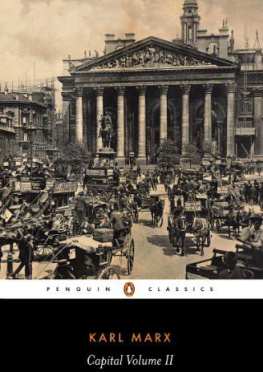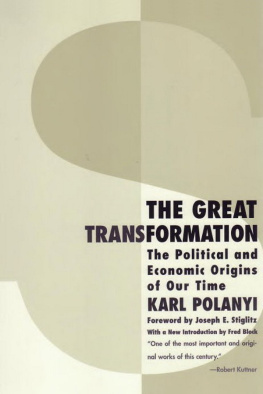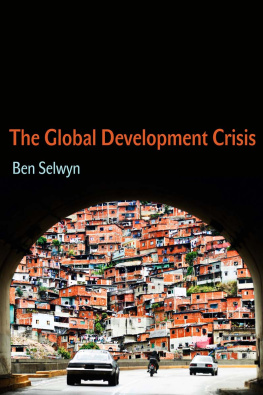
THE MORAL ECONOMISTS
The Moral Economists
R. H. TAWNEY, KARL POLANYI, E. P. THOMPSON, AND THE CRITIQUE OF CAPITALISM
TIM ROGAN
PRINCETON UNIVERSITY PRESS
PRINCETON & OXFORD
Copyright 2017 by Princeton University Press
Published by Princeton University Press,
41 William Street, Princeton, New Jersey 08540
In the United Kingdom: Princeton University Press,
6 Oxford Street, Woodstock, Oxfordshire OX20 1TR
press.princeton.edu
Jacket art: Detail from Early Morning, 1954, by L. S. Lowry
The Estate of L. S. Lowry.
All Rights Reserved
Library of Congress Cataloging-in-Publication Data
Names: Rogan, Tim, 1983 author.
Title: The moral economists : R.H. Tawney, Karl Polanyi, E.P. Thompson, and the critique of capitalism / Tim Rogan.
Description: Princeton, NJ : Princeton University Press, 2018. | Includes bibliographical references and index.
Identifiers: LCCN 2017009882 | ISBN 9780691173009 (hardcover : alk. paper)
Subjects: LCSH: CapitalismMoral and ethical aspects. | Socialism. | Tawney, R. H. (Richard Henry), 18801962. | Polanyi, Karl, 18861964. | Thompson, E. P. (Edward Palmer), 19241993.
Classification: LCC HB501 .R66657 2018 | DDC 174/.4dc23 LC record available at https://LCCN.loc.gov/2017009882
British Library Cataloging-in-Publication Data is available
This book has been composed in Classic Arno
Printed on acid-free paper.
Printed in the United States of America
10 9 8 7 6 5 4 3 2 1
For Susanne
CONTENTS
THE MORAL ECONOMISTS
Introduction
Whats wrong with capitalism? In the twenty-first century, the answer seems simple: inequality. Material disparities between the rich and the rest are widening. Prosperity has become the preserve of too few. This emphasis on material inequality seems unremarkable in our own time. But in historical perspective it is extraordinary. It represents a radical truncation of the parameters of the critique of capitalism. An alternative critical tradition focused less on material outcomes than on moral or spiritual consequences has fallen into disuse. This book explains how that happened, and why it matters, and what might be done about it.
The term capitalism was coined by social critics in nineteenth-century Germany and Britain apprehensive about the nature and tempo of social change in the era of the French Revolution and the Industrial Revolution. It described the new form of society in which acquisitive instincts long deemed vicious and countermanded by legal and cultural strictures came to be seen as virtuous and beneficent. Concerns about inequality have always been part of the argument against capitalism. But until very recently they were never the whole or even the major part of that argument. For most of the nineteenth and twentieth centuries, poverty mattered less to capitalisms critics than moral or spiritual desolation. In the twenty-first century, economic arguments take precedence. Vivid moral argument has given way to calculations of advantage and disadvantage fortified with anger and indignation.
Considered from some angles, this replacement of moral argumentation with an emphasis on material outcomes is an improvement. It enables reasonable, empirical discussion of the problem, which in turn promises to identify rational, practicable reforms: woolly, inscrutable polemic has given way to exacting analysis. Written from this perspective, an account of the means by which moral argumentation yielded to a focus on material inequality might play out as an upbeat story, a whig history for technocratic progressives.
But from another perspective there is a more sobering story to tell here. If this predominance of material reckoning over moral argument in the contemporary critique of capitalism represents a triumph for certain forms of rationality, it also bespeaks the decadence of an alternative approach, the demise of another way of engaging with social problems, the failure of an attempt to open up deeper questions of liberty and solidarityquestions which the narrower economism now prevailing systematically excludes.
The purpose of this book is to reconstruct the development and demise of this alternative moral critique of capitalism in twentieth-century Britain. This critique was a success before it was a failure. Between the twentieth centurys two great crises of capitalism the ideas recovered here inspired and informed a sustained push for reform. No precise quantification of the popular penetration or purchase of this critique is offered in this book: it is not a reception history, and readers interested in the diffusion of learned discourse into everyday life during this period should look elsewhere. Nor is any causal or correlative relationship between the vitality of this moral critique and the career of social reform and the construction of the welfare state in Britain specified here. Party politics is discussed in some passages of the book, but readers will likely be more impressed by the indifference of the major parties to these ideas and their exponents than by the degree of interest they attracted. But readers will I hope be content to accept on the basis of the evidence compiled here that the books and ideas upon which I focus had much the same effect on debate about capitalism in their time as Thomas Pikettys Capital in the Twenty-First Century or Anthony Atkinsons Inequality are having in our own time.
My point is not that there were not books like Pikettys Capital in this earlier moment. My suggestion is that in this earlier moment another suite of books developed a different line of argument against capitalism, complementing the work of the critical economists. We are the poorer intellectually, culturally, and even politically for the disappearance of that alternative approach. That is not to say that inequality is immaterial, or that we should concern ourselves with moral or spiritual questions alone. It is only to suggest that a preoccupation with material inequality which leaves no room for the considerations this moral critique brought up for discussion leaves contemporary debate diminished.
What then are these books and ideas constituent of the moral critique of capitalism, once ascendant and now abandoned in favor of an emphasis on material inequality? The Moral Economists focuses primarily on three books, published at intervals of two decades between the 1920s and the 1960s. They are R. H. Tawneys Religion and the Rise of Capitalism (1926), Karl Polanyis The Great Transformation (1944), and E. P. Thompsons The Making of the English These are landmarks of modern intellectual history and recurrent reference points for writers on the contemporary left. Each is complemented now by extensive historiographical commentary. But the closeness and intensity of their interaction has not yet been fully appreciated. Thompson emerges here as a successful innovator within a critical tradition pioneered by Tawney. More surprisingly, Karl Polanyi stands revealed as an intermediary between Tawney and Thompson.
Some of the synergies between these books will be obvious to readers familiar with their arguments. Each attempts to understand the relationship between ethics and economics in the form of society that emerged in Europe at the end of the Middle Agesa form sometimes called commercial society, sometimes market society, mainly capitalism. Each focuses on a crucial moment in the emergence of that form of society, a moment when tensions between old ethical injunctions and new economic imperatives became acute. Each booktaking the form of historyunderlines the novelty and dynamism of the new form of society, reminding readers that arrangements some contemporary writers made to seem natural and inevitable were in fact mutable and contingent, making social forms and economic norms malleable, facilitating debate about reform. Eachfirst Tawney, then Polanyi and Thompson after himapproached capitalism as a legitimate object of scholarly analysis. (Earlier it had been overlooked as a by-product of socialist polemic; lately it has been set aside by many historians as too heavily freighted with polemical significance to function as an instrument of analysis). Each book was ablewith varying degrees of successto speak to specialist and popular readerships in tandem.
Next page
